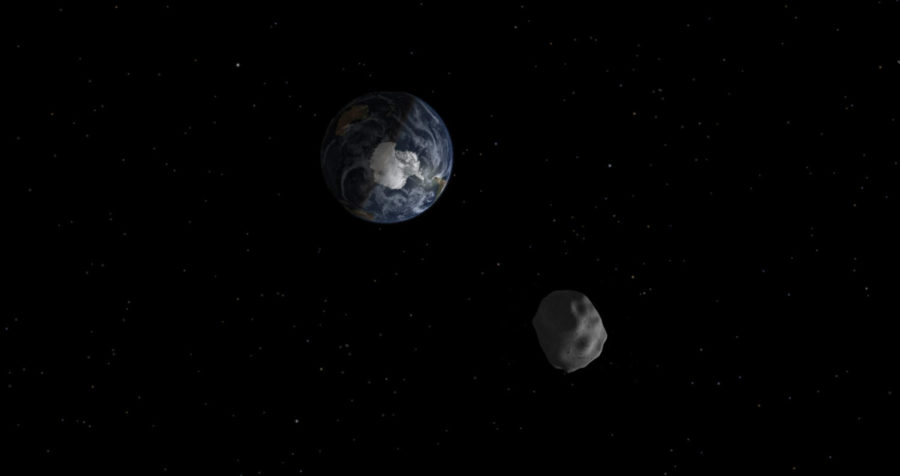Wolf: What cosmic activity affects future of planet?
February 27, 2013
On Feb. 15, the same day that a massive asteroid flew past earth, a meteorite flew into Russia, causing widespread injuries. Fox News reported that approximately 1000 Russian citizens were injured by fragments of shattered glass windows when a meteorite shook Russian homes and workplaces. Nearly every window was shattered in the town of Chelyabinsk, which is home to more than 1 million people. Many Russian YouTube users shared incredible footage of the incident shortly after, most of which was recorded on GoPro cameras that Russians place in their cars to record traffic incidents.
Although the average person may think that the asteroid and meteorite were related, NASA scientists say that they were not. But with all of this cosmic activity lately, concerned citizens may be beginning to ask about how we can ensure that an asteroid will not destroy our planet in the future. Rest assured, we have nothing to worry about in the next couple hundred years.
But first, what exactly is the difference between an asteroid and meteorite? In short, a meteorite is an asteroid that enters the earth’s atmosphere and strikes the ground. Asteroids are simply small rocky bodies that are orbiting the sun. Further, a meteor is the same as a meteorite, although it never reaches the ground because it burns up during entry into the earth’s atmosphere. These falling celestial bodies emit a bright light as they burn up, which can be quite the sight.
In an interview, David Morrison, a NASA space scientist, outlines a few steps that NASA is taking to ensure our safety. For the past 15 years, Morrison has been a part of calculating the risks of asteroid impact and promoting the idea of doing more effective surveys for asteroids. He says that so far NASA has “done a very good job of finding the larger asteroids, which are the greater danger if they are to hit earth.” He goes on to say that asteroid impacts can have drastic impacts on the globe, coining an asteroid as the cause of the extinction of dinosaurs. The global impact would be indirect, as a relatively small asteroid would strike the earth, excavating huge amounts of dust that would be circulated throughout the stratosphere. The dust would block sunlight, causing “what’s sometimes called a nuclear winter or an asteroid winter, when temperatures drop, photosynthesis stops and most life dies.”
Right now there isn’t an asteroid the size of the one that killed the dinosaurs that could impact the earth within the next few million years. NASA has focused on the smaller ones, which could be potentially dangerous. In 1908, an asteroid three times the size of the meteorite that recently hit Russia struck earth and flattened 1,000 square miles of forest near Tunguska, Russia, downing 80 million trees.
The good news is that a survey done by NASA has concluded that of the 10,000 near-Earth asteroids discovered, “not one of them will hit our planet, at least not for the next couple hundred years. So we are a lot safer than we thought we were before we started this survey.”
Morrison coins a term called “cosmophobia,” which is the fear of many things that we discover in space. He says that many people “have an immediate fear reaction to discoveries in astronomy,” which Morrison thinks can be attributed to how science fiction movies portray cosmic activity. It gives a visual feeling that universes are crashing into each other all of the time, which is just not the case.
The future of planet Earth has little to worry about when it comes to asteroids and meteors. Scientists at NASA are hard at work making sure that if a threat presents itself, we will be prepared for it decades in advance. The chances of a real threat are very slim, so the next time you find yourself thinking twice about going to class because of what might fall from the sky, it might be best to be more concerned about how well you will do on that exam coming up.







